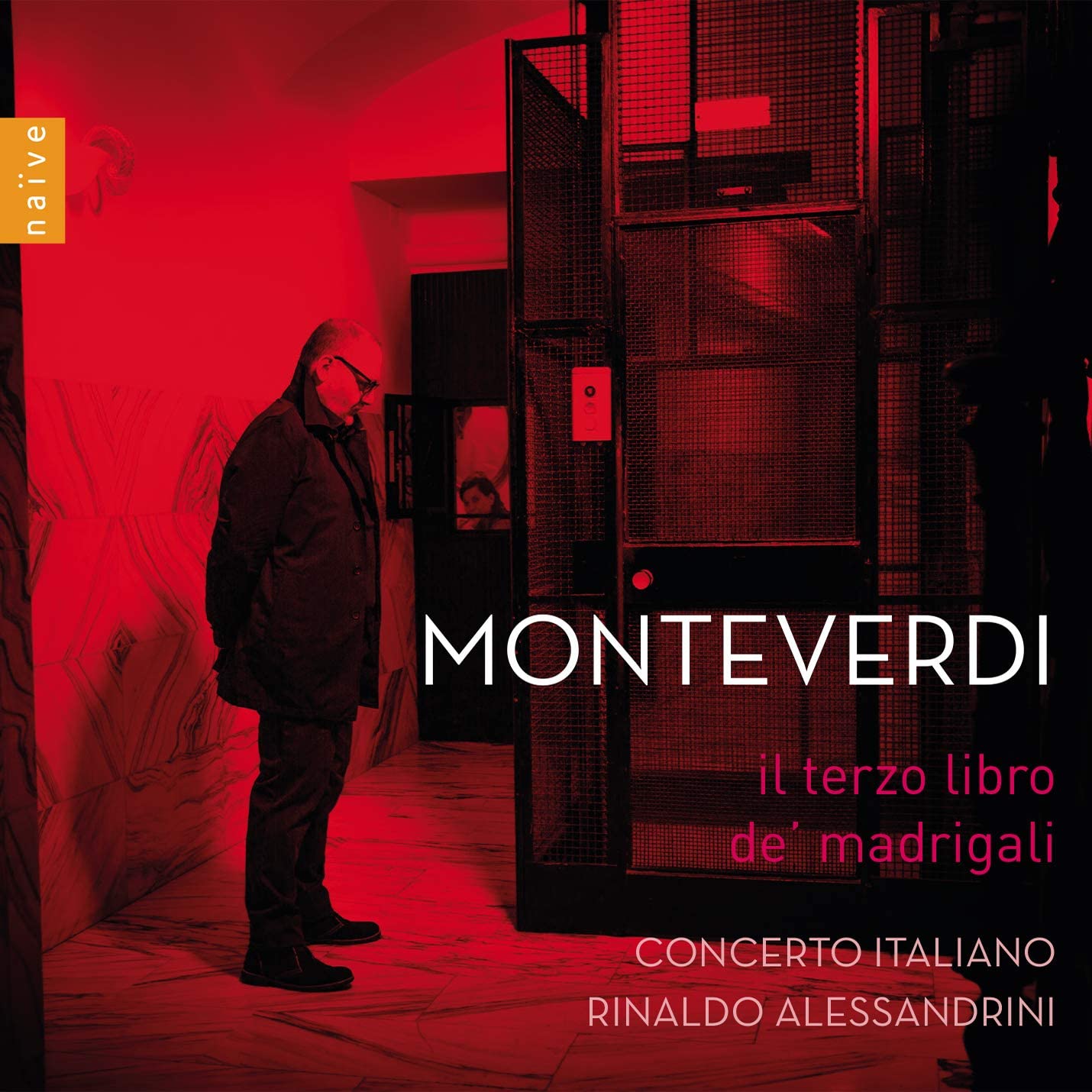Concerto Italiano, Rinaldo Alessandrini
64:33
naïve OP 30580
Click HERE to buy this recording on amazon.co.uk
Monteverdi’s appointment to the court of Mantua in 1590 or 1591 brought to the young composer new opportunities, not the least of which was contact with the Mantuan maestro di cappella Giaches de Wert, one of the great madrigalists of the day, and two of the greatest poets active at of the end of the 16th century: Giovanni Guarini and Torquato Tasso, both occasional visitors to Mantua. Monteverdi’s arrival was also near- coincidental with the recent succession to the duchy of Vincenzo Gonzago, whose expansion of court musical activity included the establishment of a consort of singers modelled on the famous ‘concerto delle dame’ in the rival court at Ferrara.
Put all the above ingredients into the mixer and you arrive at Monteverdi’s third book of madrigals, Il terzo libro de’ madrigali, published in 1592. For Guarini, whose erotic poetry provided the bulk of Monteverdi’s settings in Book 3, and the taste for the sensual combination of high voices established at Ferrara it is necessary to look no further than the delicate tapestry of the first half of the opening madrigal, ‘La giovinetta pianta’, the luminescent texture employed in talking of ‘the tender young plant’ perhaps less potent than in more serious texts but sensuous none the less. All the madrigals in Book 3 are scored for five voices, still of course a cappella at this point in the composer’s development. One of the remarkable features is the manner in which Monteverdi consistently alternates contrasts of colour between high and low voices and texture between polyphony and homophony, nearly always to dramatic purpose. These characteristics are well illustrated in the final madrigal of the collection, the two-part ‘Rimanti in pace’, to a text by Livio Celiano, a pen name for Angelo Grillo. The declamatory poem is part direct speech and part narrative, the composer clearly differentiating the two by giving the parting Tirso’s departing words to his Fillida, ‘Stay and peace be with you’, given to upper voices, while those narrated are darker and more homophonic. The brief cycle comes to a shattering conclusion with the reiteration of Fillida’s unbearably poignant motif, ‘Deh, cara anima mia’ (Tell me, dear heart of mine … who takes you from me?).
Such settings mark a foretaste of the innate dramatic gifts that would eventually lead to Monteverdi becoming the first great opera composer. They are even more in evidence in a pair of three-part cycles in which the text is drawn from episodes in Tasso’s Gerusalemme liberata, the first, ‘Vattene pur crudel’ describing the fury and then torment of Armida deserted by Rinaldo, the second the distress of the Christian knight Tancredi after he has killed the Saracen warrior-maiden Clorinda, a topic to which Monteverdi would return memorably in Book 8 almost fifty years later. The former, again a declamatory alternation of direct speech and narrative, the latter vividly descriptive at the point at the end of part 2, where Armida, faint from extreme emotion, lapses into unconsciousness as quiet dissonance takes over before the third part opens with a magical evocation of ‘nothing but empty silence all about her’ greets the reviving Armida.
The madrigal ensemble of Rinaldo Alessandrini’s Concerto Italiano has gone through several reincarnations since he first started recording Monteverdi’s madrigals. Indeed Alessandro reminds us in a booklet note that it is fifteen years since his last complete madrigal book recording (Book 6). The present ensemble is at least a match for any of its predecessors, with both individuality – the two leading sopranos, Francesca Cassinari and Monica Piccinini, have pleasingly differentiated voices – and an excellent blend that retains enough clarity to allow contrapuntal strands to stand out clearly. Diction and articulation, too, are excellent. Just once or twice I did wonder if Alessandrini was making a little too much of tempo contrasts (‘O primavera’ is an example), but such doubts are rapidly banished within the context of such exceptionally musical performances.
Brian Robins
